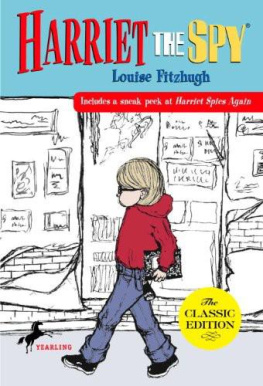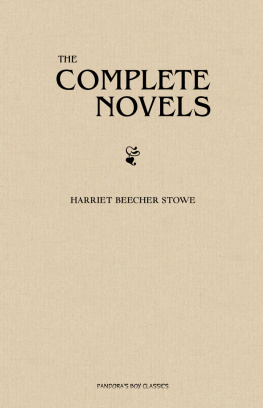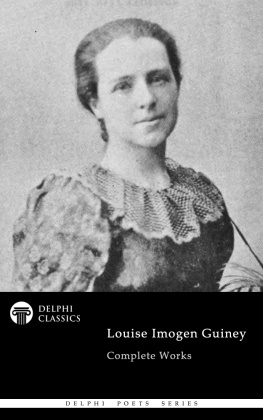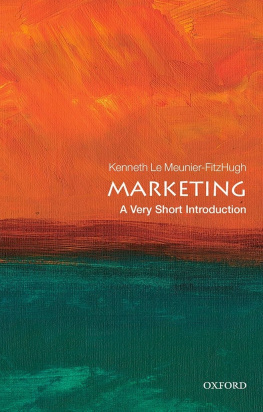Louise Fitzhugh - Harriet the Spy
Here you can read online Louise Fitzhugh - Harriet the Spy full text of the book (entire story) in english for free. Download pdf and epub, get meaning, cover and reviews about this ebook. year: 2002, publisher: Yearling, genre: Detective and thriller. Description of the work, (preface) as well as reviews are available. Best literature library LitArk.com created for fans of good reading and offers a wide selection of genres:
Romance novel
Science fiction
Adventure
Detective
Science
History
Home and family
Prose
Art
Politics
Computer
Non-fiction
Religion
Business
Children
Humor
Choose a favorite category and find really read worthwhile books. Enjoy immersion in the world of imagination, feel the emotions of the characters or learn something new for yourself, make an fascinating discovery.
- Book:Harriet the Spy
- Author:
- Publisher:Yearling
- Genre:
- Year:2002
- Rating:3 / 5
- Favourites:Add to favourites
- Your mark:
- 60
- 1
- 2
- 3
- 4
- 5
Harriet the Spy: summary, description and annotation
We offer to read an annotation, description, summary or preface (depends on what the author of the book "Harriet the Spy" wrote himself). If you haven't found the necessary information about the book — write in the comments, we will try to find it.
Harriet the Spy — read online for free the complete book (whole text) full work
Below is the text of the book, divided by pages. System saving the place of the last page read, allows you to conveniently read the book "Harriet the Spy" online for free, without having to search again every time where you left off. Put a bookmark, and you can go to the page where you finished reading at any time.
Font size:
Interval:
Bookmark:
SPORT, Louise Fitzhugh
THE LONG SECRET, Louise Fitzhugh
HARRIET SPIES AGAIN, Helen Ericson
THE PHANTOM TOLLBOOTH, Norton Juster
A WRINKLE IN TIME, Madeleine LEngle
BUD, NOT BUDDY, Christopher Paul Curtis
ALL-OF-A-KIND FAMILY, Sydney Taylor
SAMMY KEYES AND THE SEARCH FOR SNAKE EYES Wendelin Van Draanen
PURE DEAD WICKED, Debi Gliori
SKELLIG, David Almond

I wont go, Harriet told her parents. She glared at them.
Her parents had called her down from her room while she was busy on a project. Ordinarily the cook served Harriet her dinner at six in the kitchen while her parents had martinis in the living room. Harriet looked at her watch. It was exactly six. So not only had they interrupted her project, but now they were making her late for her dinner, which was very likely getting cold.
She had been making a time line of her life. By taping sheets of paper carefully together, she had created a strip so long it reached from the door of her bedroom to the bottom of the old toy box that held all her notebooks. It had taken her twelve pieces of paper. Since Harriet would be twelve on her next birthday, she had designated one sheet for each year of her life. Then she had begun to fill in the important events. But she had barely finished half of the first page when her mother interrupted her.
SIX MONTHS. SPEAKS FIRST WORD , Harriet had just written halfway across the first-year page. She thought for a moment about what her first word might have been. She pictured herself at six months old, with her nursemaid poised over the bassinet looking down at her, probably holding a warm milk-filled bottle. What might she have said?
FIRST WORD , she wrote as a subcategory. She thought about it for a while, trying to decide what a first word might be, at least a first word from the lips of a highly intelligent New York infant named Harriet M. Welsch. Carefully she printed PROCEED.
Then she went on to SEVEN MONTHS. SPEAKS FIRST SENTENCE. FIRST SENTENCE: PROCEED WITH THE FEEDING, PLEASE.
Harriet, dear? her mother had called up the stairs to Harriets cozy bedroom at the top of the tall, narrow house. Would you come down, please?
Reluctantly Harriet had rolled up her time line and headed down the two long flights of stairs to the double living room on the first floor. I hope we didnt interrupt anything important, dear, Mrs. Welsch said after Harriet entered the living room and sat down on a dark red velvet chair. Harriet shrugged. They would not understand the time line. It would make them feel nervous and uncertain, she thought. Her parents frequently felt nervous and uncertain about her projects.
So she said only, I was just thinking about my infancy. Do you happen to remember my first word?
Of course I do! Parents never forget such things, Mrs. Welsch said. She turned to her husband. Harry, tell Harriet what her first word was!
Harriets father stared blankly at her.
Mrs. Welsch gave a thin laugh. It was cookie, dear. You were about fourteen months old, and one day you quite clearly said cookie.
And my first sentence? Harriet asked, glumly realizing that she would have to start her time line over with the correct information. Cross-outs were unacceptable and Harriet only used pens. Just last Christmas her parents had given her a wonderful dark green Waterman pen, which she treasured and used as often as possible. What was my first sentence?
Well, you combined a verb and a noun, dear. You said, Gimme cookie.
Oh, Harriet said. Well, she thought, I wont bother to erase after all. Its essentially the same thing as Proceed with the feeding.
Why did you want me to come down? she asked her parents.
We have some news to share with you. Would you like a peanut, by the way? Mrs. Welsch put her martini down and passed a small silver dish of peanuts to Harriet.
Harriet shook her head. Ordinarily she liked peanuts, but for some reason she could feel her appetite disappearing. It made her uncomfortable when her parents announced news. Their news never seemed to be the kind of news Harriet wanted to hear. What news? she asked.
Your father has received a rather important assignment from the network. Harry, wouldnt you like to describe it to Harriet?
Mr. Welsch had been looking at the folded newspaper on the table near the peanut dish. He was pretending not to. But Harriet could see him surreptitiously glancing at the days headlines. Paris, he said.
Paris? asked Harriet with suspicion. France?
Were to leave next week for Paris! Mrs. Welsch explained in the same perky, delighted voice that she used to describe bridge tournaments or antiques auctions.
For how long? Harriet wasnt deceived by the voice. A little vacation in Paris would be okay, she thought. Maybe it would be a pleasant interlude before school resumed next month. But she had an ominous feeling. She was glad she hadnt accepted a peanut. It might have lulled her too quickly into a cheerful reaction, when really suspicion was called for.
Her mother wiped her lips tidily, using a small cocktail napkin printed with a red-and-green design of olives in a stack. She said something that sounded like twamah while holding the napkin in front of her mouth.
Twamah? Harriet repeated, wondering if perhaps her mother was speaking French, although Harriet had studied French for two years already, in fifth and sixth grades, and twamah had not been a vocabulary word.
Trois mois, Mr. Welsch said quite clearly and with an air of impatience. Were going to live in Paris for three months, beginning next week.
The network has rented a lovely apartment for us, dear, Mrs. Welsch said. Quite near the Luxembourg Gardens. Les jardins, I mean.
In her mind Harriet leapt ahead on her time line to the final sheet, the one for her twelfth year, the one that she wedged under a corner of her old toy box when the long strip was unrolled on the floor of her room. AGE ALMOST-TWELVE: MOVES TO PARIS. It was not what she had had in mind for age almost-twelve.
I wont go, she told her parents, glaring. Then she added, And in case you missed it, I expostulated that.
Her father looked at her through his glasses. Harriets father was a television executive. He had an executive face, and hair that was combed in an executive way.
Excuse me? Mr. Welsch said.
Harriet imagined how he must look in his office when some poor scriptwriter, nervous and hungry, sat before him with a manuscript held together by a frayed rubber band and pleaded for a chance to be head writer on a sitcom so he could pay his debts and feed his starving children. Her father would probably look down through his glasses the same way. He would probably say in that same executive voice, Excuse me?
Harriet sighed. She repeated it. I wont go, she said for the second time.
No, no, I understood that part, her father said. He sipped his martini. I didnt understand what you added, about expostulating.
Oh. Well, Harriet explained, Mr. Grenville says
Harriets mother interrupted. Mr. Grenville is one of Harriets teachers at school, dear, she told Harriets father.
He nodded. Harriet could tell he was making a note of that in his head. Go on, he said.
Mr. Grenville says we must use strong verbs when we write.
Strong verbs? Mr. Welsch took another sip of his drink.
Font size:
Interval:
Bookmark:
Similar books «Harriet the Spy»
Look at similar books to Harriet the Spy. We have selected literature similar in name and meaning in the hope of providing readers with more options to find new, interesting, not yet read works.
Discussion, reviews of the book Harriet the Spy and just readers' own opinions. Leave your comments, write what you think about the work, its meaning or the main characters. Specify what exactly you liked and what you didn't like, and why you think so.










